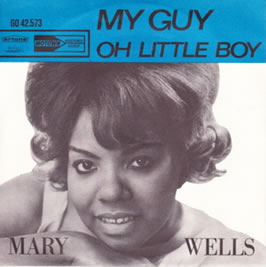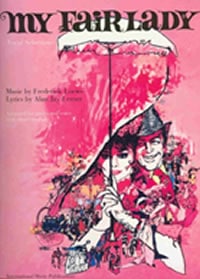1) Politics

The Civil Rights Act Signed Into Law
The Civil Rights Act was signed into law, effectively outlawing racial segregation.
It ended unequal application of voter registration requirements and racial segregation in schools, at the workplace and by facilities that served the general
The Act was signed into law by President Lyndon B. Johnson on July 2, 1964, at the
White House.

1964 Presidential Election
The 45th Presidential Election was held on Tuesday, November 3, 1964. Democratic candidate and incumbent President Lyndon B. Johnson had come to office less than a year earlier following the assassination of his predecessor John F. Kennedy. Lyndon Johnson would win the election by a landslide.

Warren Commission
This commission was established by President Lyndon B. Johnson to investigate the assassination of United States President John F. Kennedy. It concluded that President Kennedy was assassinated by Lee Harvey Oswald and that Oswald acted entirely alone. It also concluded that Jack Ruby also acted alone when he killed Oswald two days later. The Commission’s findings have proven controversial and have been both challenged and supported by later studies.

World’s Fair New York
The 1964 World’s Fair was held in New York City and the theme was “Peace Through Understanding”. The fair is best remembered as a showcase of mid-20th-century American culture and technology.

The Beatles
The Beatles came to the United States for the first time this year.
On 9 February 1964, the Beatles made their first live U.S. television appearance. 73 million viewers watched the group perform on The Ed Sullivan Show. According to the Nielsen ratings, the show had the largest number of viewers that had been recorded for a U.S. television program. Two days after the television appearance, on February 11, 1964, the Beatles’ first U.S. concert took place, at Washington Coliseum, a sports arena in Washington, D.C. The following day, the Beatles performed a second concert, in Carnegie Hall, New York, which was attended by two thousand fans. Following the Carnegie Hall concert, the Beatles flew to Miami Beach and made their second television appearance on The Ed Sullivan Show, which this time was broadcast live from the Napoleon Ballroom of the Deauville Hotel in Miami Beach.
2) Major Events

Muhammad Ali
Muhammad Ali’s two fights with Sonny Liston were among the most anticipated, watched and controversial fights in the sport’s history. Sports Illustrated magazine named the first Clay–Liston fight (Ali had not yet changed his name from Cassius Clay) as the fourth greatest sports moment of the twentieth century.

Beatles
The British Invasion began in this year. With intense media interest in the Beatles during 1963, the year was also taken up with TV shows, press interviews and a weekly radio show. Despite these demands the band found time for many sessions in the recording studio, releasing two albums and four singles during the year.
3) Music
I Want to Hold Your Hand: The Beatles

Oh Pretty Woman: Roy Orbison

The House of the Rising Sun: The Animals

A Hard Day’s Night: The Beatles

I Feel Fine: The Beatles

Baby I need Your Loving: The Four Tops

Come See About Me: The Supremes

Dancing in the Street: Martha and the Vandellas

Do Wah Diddy Diddy: Manfred Mann

I Get Around: The Beach Boys

I’m Into Something Good: Herman’s Hermits

Don’t Let the Sun Catch You Crying: Gerry and The Pacemakers

My Guy: Mary Wells

A World Without Love: Peter and Gordon

4) Films

Dr. Strangelove
This black comedy film poked fun at the Cold War fears of a nuclear conflict between the USSR and the US. The film was directed, produced, and co-written by Stanley Kubrick and starred Peter Sellers and George C. Scott.

My Fair Lady
This American musical film adaptation of the 1913 stage play Pygmalion by George Bernard Shaw was directed George Cukor. The film won eight Academy Awards, including Best Picture, Best Actor, and Best Director.

Pink Panther
This American comedy film was directed by Blake Edwards and co-written by Edwards and Maurice Richlin. It starred David Niven, Peter Sellers, Robert Wagner, Capucine, and Claudia Cardinale. The film introduced the cartoon character of the same name, in an opening credits sequence animated by DePatie-Freleng Enterprises.

A Hard Day’s Night
This British comedy film was directed by Richard Lester and starred all of the Beatles—John Lennon, Paul McCartney, George Harrison and Ringo Starr—during the height of Beatlemania. It was written by Alun Owen and originally released by United Artists. The film portrays several days in the lives of the group.

Viva Las Vegas
This American musical film starred Elvis Presley and actress Ann-Margret. Directed by golden age Hollywood musical director George Sidney, the film is regarded by fans and by film critics as one of Presley’s best movies, and it is noted for the on-screen chemistry between Presley and Ann-Margret.
5) Television

Bewitched
This was an American television sitcom fantasy series broadcast on ABC beginning on September 17, 1964. It starred Elizabeth Montgomery, Dick York (1964–1969), Agnes Moorehead, and David White. Dick Sargent replaced an ill York for the final three seasons (1969–1972). The show is about a witch who marries an ordinary mortal man, and vows to lead the life of a typical suburban housewife. Bewitched enjoyed great popularity, finishing as the number two show in America during its debut season. The show continues to be seen throughout the world in syndication and on recorded media.

Gilligan’s Island
This American sitcom was created and produced by Sherwood Schwartz via United Artists Television. The show featured Bob Denver, Alan Hale, Jr., Jim Backus, Natalie Schafer, Russell Johnson, Tina Louise, and Dawn Wells. It began being aired air on the CBS network on September 26, 1964. The show followed the adventures of seven castaways as they attempted to survive the island on which they had been shipwrecked.

Munsters
This American television sitcom depicted the home life of a family of monsters. It stars Fred Gwynne as Herman Munster and Yvonne De Carlo as his wife, Lily Munster. The series was a satire of both traditional monster movies and the wholesome family fare of the era, and was produced by the creators of Leave It to Beaver. It ran concurrently with the similarly macabre themed The Addams Family and achieved higher figures in the Nielsen ratings. The series originally aired on Thursday at 7:30 pm on CBS and started on September 24, 1964.

Shindig
This American musical variety series aired on ABC starting on September 16, 1964. The show was hosted by Jimmy O’Neill, a disc jockey from Los Angeles.

The Man from UNCLE
This American television series began being broadcast on NBC on September 22, 1964. It followed secret agents, played by Robert Vaughn and David McCallum, who worked for a secret international counter espionage and law enforcement agency called U.N.C.L.E.
5) Books

“Silent Spring” by Rachel Carson
The book detailed how damaging pesticides were to the environment and especially the birds. Silent Spring brought environmental concerns to the American public. Silent Spring was met with fierce opposition by chemical companies, but it spurred a reversal in national pesticide policy and would lead to a nationwide ban on DDT for agricultural usage. It also inspired the creation of the U.S. Environmental Protection Agency
